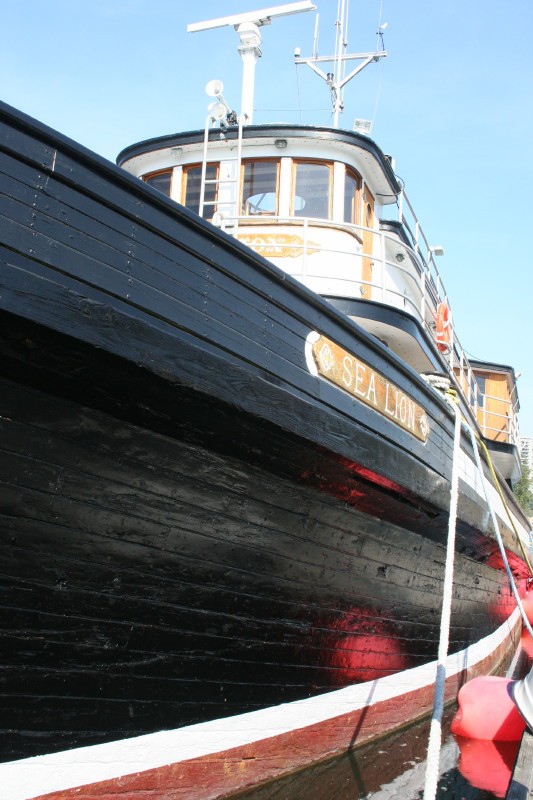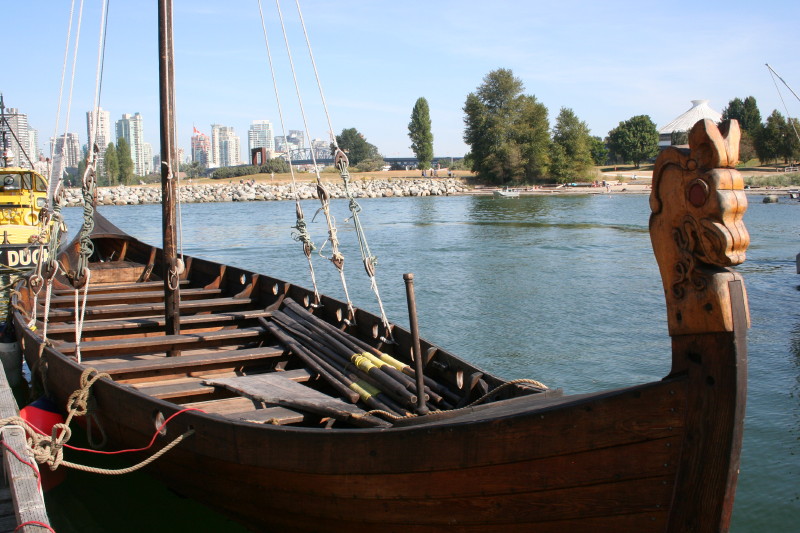
On the dock near Vanier Park, I stand between two boats, the Sea Lion and the Munin.
The Sea Lion is a hundred years old this year, and was apparently the first tug boat to be equipped with a search light, as well as a ship-to-shore radio. It also has the dubious distinction of having played a major part in the Komagata Maru incident of 1914, when a group of East Indians, believing themselves to be entitiled to full rights as citizens of the British Empire, decided to pay Canada a visit. In doing so, they purposed to challenge the discriminatory immigration laws of the time.
Needless to say, their boat was intercepted, denied permission to land and after a two month long battle both on and off the water, it was eventually sent home to India. It is one of many blots on our country's history that tends to be either glossed over or ignored.

The Munin is a half-sized scale replica of the Gokstad ship found near Tønsberg, in Norway. It was lovingly handcrafted a few years ago by the local Skandinavian community as a celebration of their ancestors and culture.
I believe that the Vikings are probably not completely deserving of the boorish and bloodthirsty image we tend to paint of them, just as we aren't completely deserving of the peaceful and tolerant image we have of ourselves. It can be argued that the Vikings invaded, pillaged and burned out of economic necessity, but the same cannot be said for us. The subjegation of aboriginal peoples and Metis, the Chinese head tax, the internment of Japanese citizens during WWII, the Komagata Maru incident, and the forced sterilization of 'undesireable' people (ie. mentally handicapped and Eastern European) in the praries as few as 40 years ago, as well as other events which I fail to mention were all motivated by racism. There is no other way to describe it, except to add that it was all accomplished in a much shorter and more recent period of time.
I'm struck by the contrast between the two vessels, both representing our different concepts of "ancient history". I guess in the long scheme of things two thousand years is barely more than a moment in time, but think of how much more insignificant it renders our own short history in comparison.
I have a lot to think about today.







|